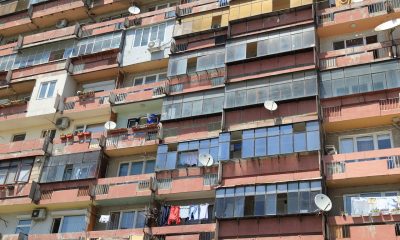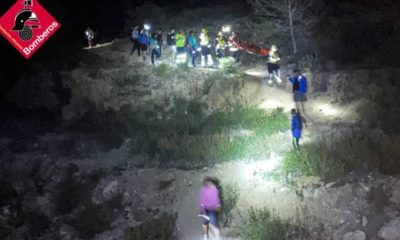Costa Blanca
Nurses in Alicante call for immediate action to stop assaults on medical personnel

On the occasion of the European Day Against Assaults on Healthcare Professionals, the Alicante College of Nursing expresses its strong condemnation of the attacks that continue to affect nurses in the Valencian Community and across the nation, joining the protests of other professional associations. This kind of violence has grown to be a serious issue that calls for effective preventative measures.
According to the most recent data from the General Nursing Council’s (CGE) Aggression Observatory, nurses are the healthcare workers that experience the most assaults. In 2023, 2,840 assaults were reported in Spain, a 10% rise from 2022. There were 15 assaults on nurses in the Valencian Community in 2023, 2 assaults in the province of Alicante in 2024, and 3 and 9 assaults in Castellón and Valencia, respectively, for a total of 14.
The Alicante institution encourages reporting to the authorities because, regrettably, the great majority of these instances go undetected. This is caused by a number of things, including the acceptance of violence in the medical field, experts’ helplessness, and fear of retaliation. Many of these attacks go unpunished in part because of the absence of excellent sanctions and the belief that the reporting process is cumbersome.
Regions where the incidence is higher
These attacks are particularly common in emergency departments, where patients and their families become extremely frustrated with service delays. Stress and tension conditions are more common in Primary Care and Mental Health, two more impacted areas. Twenty-three percent of all attacks experienced by nurses are physical, endangering not only the professionals’ integrity but also their mental health.
“The most frequent causes correspond to those related to the care perceived by the user, followed by those related to the user’s demands, and, in third and fourth place, those unrelated to the organisation or the care provided or those related to the health or administrative act performed itself,” according to the Ministry of Health’s 2024 Report on Assaults on Professionals of the National Health System. keeping the distribution consistent with prior years.
The Alicante College of Nursing once more calls on the appropriate authorities to make sure that complaints are handled promptly and efficiently and to strictly enforce the laws against assaults on healthcare workers. Additionally, it urges more public understanding of the significance of treating healthcare personnel with respect and demands for tighter security measures in all healthcare settings.
Discover more from Costa Blanca Daily
Subscribe to get the latest posts sent to your email.
Costa Blanca
Three-year-old boy injured after being attacked by a dog in Orihuela
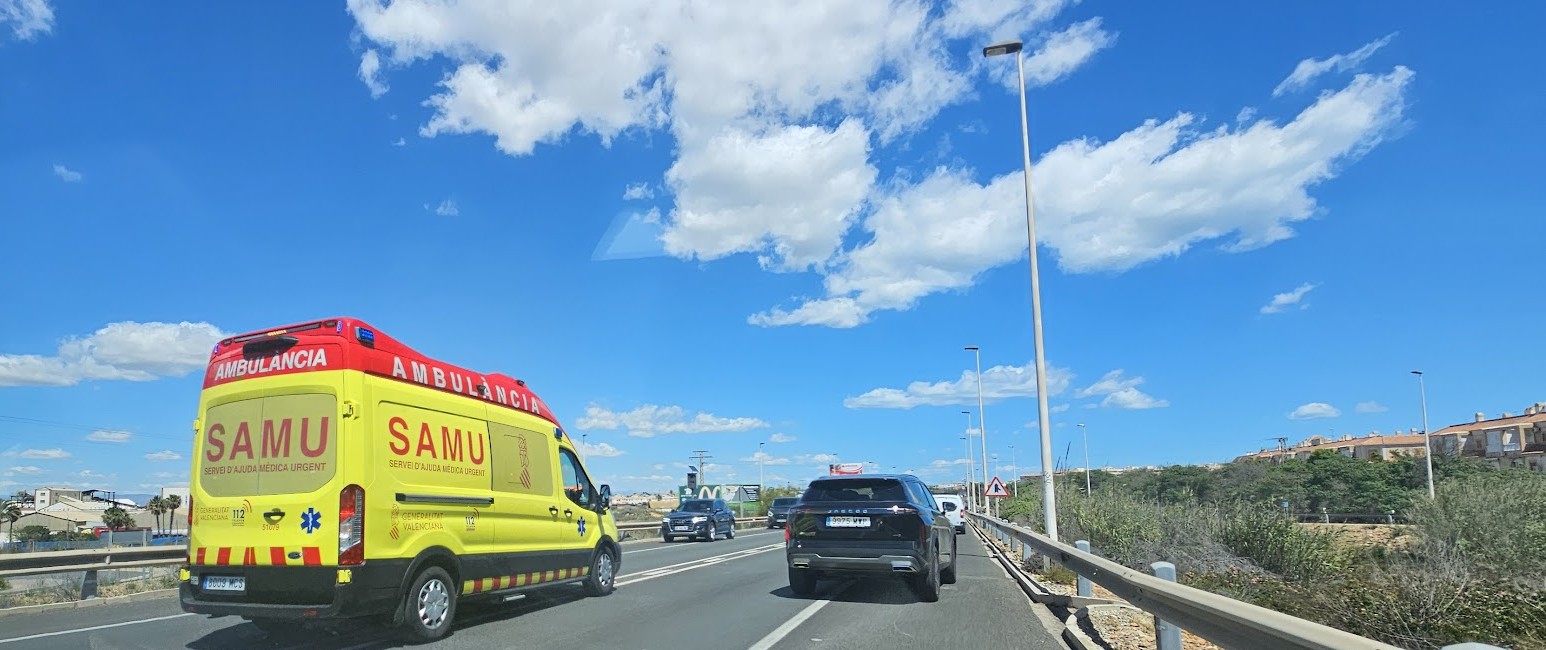
In the Orihuela district of La Murada, a three-year-old child sustained multiple facial and back injuries as a result of a dog attack.
The incident occurred at the intersection of Calle Antonio Balaguer and Camino de los Almendros slightly after 2 p.m. on Saturday, May 3rd.
The child and his mother had gone to their neighbour’s house across the street to eat and spend the afternoon when the dog emerged from the garage and “hooked” the child, according to witnesses.
The family members’ prompt action in separating the large, mixed-breed dog prevented “a tragedy,” as per the same sources.
It appears that the neighbours have encountered comparable hazardous circumstances in the past; however, they have not culminated in an attack, as they have in this instance, despite the numerous warnings they have issued to the proprietor.
The site was attended to by the local police and Guardia Civil. The SAMU (Safety and Emergency Medical Service) was dispatched by the Emergency Information and Coordination Centre, which received the call at 2:38 p.m. A Basic Life Support unit was mobilised and conveyed the child to the Orihuela health centre upon the medical team’s arrival, as the child appeared to have sustained some scratches.
Discover more from Costa Blanca Daily
Subscribe to get the latest posts sent to your email.
Costa Blanca
Tourist rentals are prohibited in all residential communities

Until recently, any owner was able to convert their property into a tourist flat by obtaining the corresponding regional or local tourist licence. However, this has been altered: Since April 3rd, 2025, tourist rentals are automatically prohibited in all residential communities. Only a specific agreement at a meeting can authorise it.
This is a significant reform of the Horizontal Property Law, as it now grants residents’ associations legal control over this activity. The new Article 17.12, which has entirely altered the previous legal framework regarding tourist apartments, is the critical factor.
What is the new legislation regarding visitor apartments?
The following is established by the new Article 17.12 of the Horizontal Property Law:
“The express agreement that authorises, restricts, conditions, or prohibits the activity (…) will necessitate the affirmative vote of three-fifths of the total number of owners, who, in turn, represent three-fifths of the participation quotas.”
Therefore, without the community’s prior consent, no proprietor will be able to rent out their property for tourist purposes. Only the explicit consent of a qualified majority can lift the comprehensive prohibition.
The primary modification is that the agreement no longer prohibits it, but now permits it.
Tourist rentals were permissible prior to April 3rd, 2025, unless the community agreed to prohibit them at a meeting.
Tourist rentals are prohibited as of April 3, 2025, unless the community explicitly authorises them with the affirmative vote of three-fifths of the total number of proprietors and members. In other words, the burden of proof is reversed: authorisation is now necessary rather than prohibition.
What if there are already tourist rentals in flats?
The reform does not have a retroactive effect. This implies that proprietors who were already legitimately conducting their enterprises prior to April 3, 2025, and who were registered under tourism regulations, are permitted to continue doing so. This clause is specified in the second supplementary provision of the law.
Nevertheless, the community may also consent to a surcharge of up to 20% on common expenditures for those homes, as a form of compensation for the increased use of common areas, with a 3/5 majority.
What is the function of the bylaws of a neighbourhood community?
The constitutive document or the community statutes are indispensable. This prohibition is fully enforceable and remains in place if they already contain a clause that expressly prohibits tourist use or any commercial activity, as confirmed by the Supreme Court in rulings of 2023 and 2024.
The community can also stop the activity immediately if the statutes change the usage regime, even without new ballots.
What happens if a landowner disregards the regulations and rents out their property without authorisation?
In that event, the community is entitled to request that the activity be ceased. The president, any proprietor, or even an affected occupant may initiate the procedure. If the offender persists, the community may pursue legal action.
Is there any additional requirement for renting a property for tourist purposes, in addition to community approval?
The owner is still required to acquire the appropriate tourist licence in accordance with regional or municipal regulations, although the community has authorised the activity. This administrative permit is essential, but it is insufficient to initiate the activity; community authorisation is required.
Discover more from Costa Blanca Daily
Subscribe to get the latest posts sent to your email.
Costa Blanca
Alicante police dismantle a drug sales point and arrest a man for drug trafficking

A 42-year-old male has been apprehended by National Police officers in Alicante on suspicion of drug trafficking. The police operation resulted in the elimination of a significant drug sales outlet that was operating from the detainee’s residence.
The investigation commenced upon the receipt of information that purportedly implicated a man in the distribution of narcotics, specifically cocaine. The investigation revealed that the suspect hid the drugs in a second residence until their subsequent distribution.
The suspect’s illicit activity was confirmed by surveillance and follow-up actions during the police operation. Additionally, it was discovered that the individual used two vehicles to transport the doses to the purchasers who had requested them, employing stringent security protocols to prevent detection.
The suspect was arrested and his residence was searched during the exploitation phase of the investigation. Officers confiscated approximately 860 grams of cocaine, a precision scale, and a variety of instruments used in the production, handling, and sale of narcotics.
Upon the conclusion of police investigations, the detainee was transferred to the Alicante Investigation Court. The police operation resulted in the elimination of a regular point of sale for illicit substances that supplied the entire northern area of the Alicante town.
Discover more from Costa Blanca Daily
Subscribe to get the latest posts sent to your email.
-

 Costa Blanca2 weeks ago
Costa Blanca2 weeks agoCatral Local Police car ends up upside down after accident
-
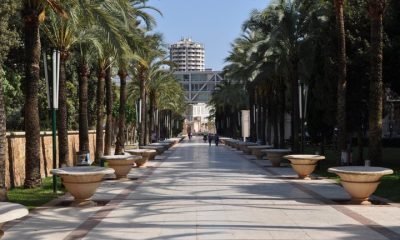
 Costa Blanca1 week ago
Costa Blanca1 week agoBenidorm studies the temperature of its streets to understand “heat island effect”
-

 News2 weeks ago
News2 weeks agoThe Generalitat presents the road map for the widening of the CV-95 between Orihuela and Torrevieja
-
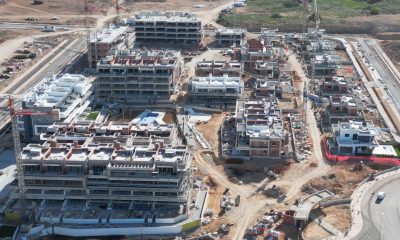
 Costa Blanca2 weeks ago
Costa Blanca2 weeks ago44% of homes in Alicante province were purchased by foreigners
-

 Costa Blanca1 week ago
Costa Blanca1 week ago‘Cartagena’, the new electric Navy ship
-

 Costa Blanca2 weeks ago
Costa Blanca2 weeks agoPolice arrested a man who sold a niche for 1,500€ that he didn’t own
-

 Costa Blanca1 week ago
Costa Blanca1 week agoAlicante port gets an electric boat for cleaning the water surface
-

 Costa Blanca1 week ago
Costa Blanca1 week agoFour minors arrested for smuggling drugs on a school trip



